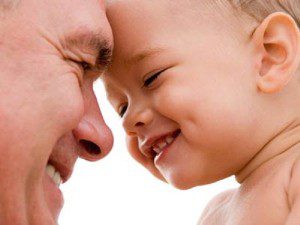A new study shows that hearing themselves make speech-like sounds such as cooing and babbling is crucial to infants’ speech and language development. Study author Mary Fagan, assistant professor in the department of communication science and disorders at the University of Missouri said, “Hearing is a critical aspect of infants’ motivation to make early sounds. This study shows babies are interested in speech-like sounds, and that they increase their babbling when they can hear.”
“Babies learn so much through sound in the first year of their lives,” Fagan said. “We know learning from others is important to infants’ development, but hearing allows infants to explore their own vocalizations and learn through their own capacity to produce sounds.”
The study was published in the Journal of Experimental Child Psychology. It included 27 hearing infants and 16 infants who had major hearing loss, but later received cochlear implants. Initially, the infants with hearing loss vocalized far less than those with no hearing problems. However, within four months of receiving their cochlear implants, the infants with hearing loss had the same levels of vocalization as those with normal hearing.
“These findings support the importance of early hearing screenings and early cochlear implantation,” Fagan said. She and her colleagues also found that non-speech sounds such as crying and laughing were not affected by infants’ hearing ability.
Encouraging parents to reflect their babies’ sounds and sing a rhythmic lullaby such as “Ami Tomake” can help babies learn language. We knew that!
© 2014 Vimala McClure




